Religion vs violence: how religious communities are challenging domestic violence in Kyrgyzstan
Domestic violence was already a huge threat to the safety of women in Kyrgyzstan and has only worsened in 2020, driven by the COVID-19 pandemic.
COVID-19 has impacted every aspect of life – social and economic. In March 2020, the Kyrgyz authorities enforced a lockdown across the country as a response to COVID-19, leaving families confined to their homes. The cramped space, unemployment and anxiety about the future led to many conflicts within the household, including domestic violence. All factors that a recent study by International Alert found to be contributing to the increase in domestic violence in 2020.
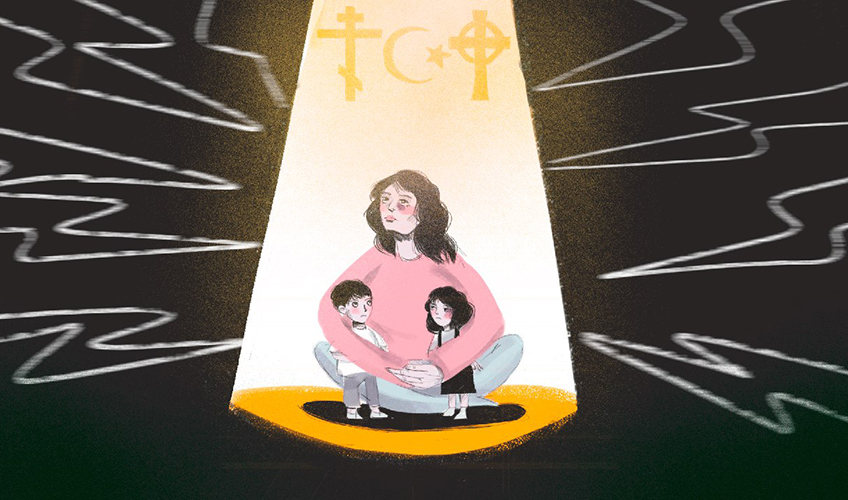
Through our Tatyktoo zhasho (Living with dignity) project, we have been working with religious leaders – Muslims, Orthodox Christians, Protestants, Catholics, Bahá’ís and Tengrians – to challenge the messages and social norms surrounding domestic violence, and to tackle domestic violence and its consequences within communities. This article shares some insights into the work these religious leaders are doing.
A safe space to talk
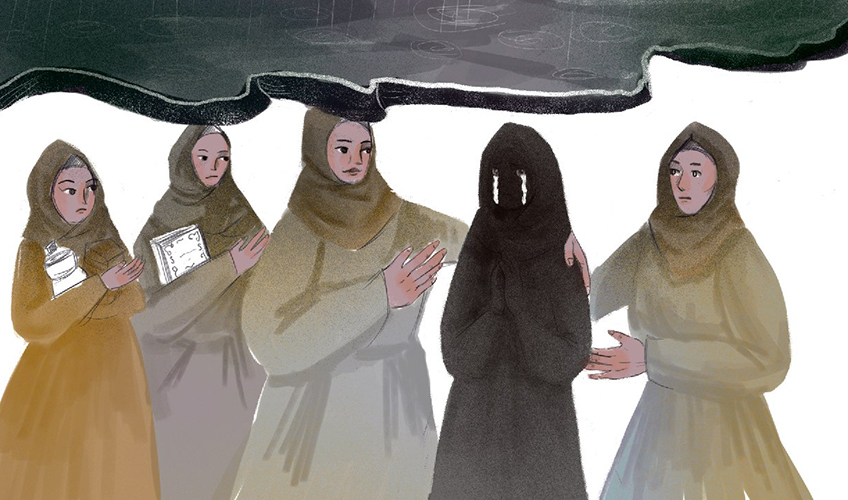
Zhamal Frontbek Kyzy and her Foundation, Mutakalim, have been fighting for the rights of Muslim women for more than 20 years – they teach legal literacy, create conditions for economic independence, conduct educational courses for children from disadvantaged backgrounds, and provide victims of domestic violence with psychological and legal assistance, help find temporary shelter and protect them from their aggressor.
According to Zhamal, women have always come to them with complaints about domestic violence, but in 2020, they saw the number of complaints “increase almost 2-3 times” because of COVID-19.
According to the data of the Ministry of Internal Affairs, in the first six months of 2020, the number of complaints about domestic violence increased by 65%, compared to the same period in 2019, and these are only official figures.
Following International Alert’s trainings for religious groups to help prevent violence against women and girls (VAWG), Mutakalim held a series of live broadcasts on Facebook and Instagram with experts on the topic.
“During the live broadcast attendees asked how our foundation could help [victims of violence], where to go, how to get legal support. [Also] we have groups on WhatsApp – women there often write, call and talk about being abused,” she says.
According to various sources, more than 80% of the population of Kyrgyzstan is Muslim.
She adds that the men who have watched the broadcasts did not always like the issues raised. On Facebook they saw a lot of comments saying, “women – you should not raise this topic. You are shameless in discussing this topic online,” Zhamal tells us. At first this deterred women from engaging with the conversation but this started to change.
Gradually the number of women increased significantly, and they didn’t hesitate in sharing their problems on the air and asking questions…they even sent the broadcasts to their relatives, showed it to their husbands and women who are subjected to violence.
“We have a lot of conversations with aggressors. If they are religious people, then we ask the imams to get involved. They, of course, deny violence, but we still try to work with men, with the mother-in-law, and with the woman’s mother,” Zhamal says.
“If a person has committed violent actions against his family, then we, in close cooperation with government agencies, try to correct this situation. Islam has always championed women’s rights,” says Mohammed Durgalov, the imam of the city of Kant.
Zhamal believes that, in part, the problem of domestic violence can be solved by explaining the laws around domestic violence in simple language so that everyone understands their rights, raise the level of education and legal literacy among the population and create within the Spiritual Directorate of Muslims of Kyrgyzstan – a body or position for women to whom Muslim women can address their problems.
Challenging stereotypes
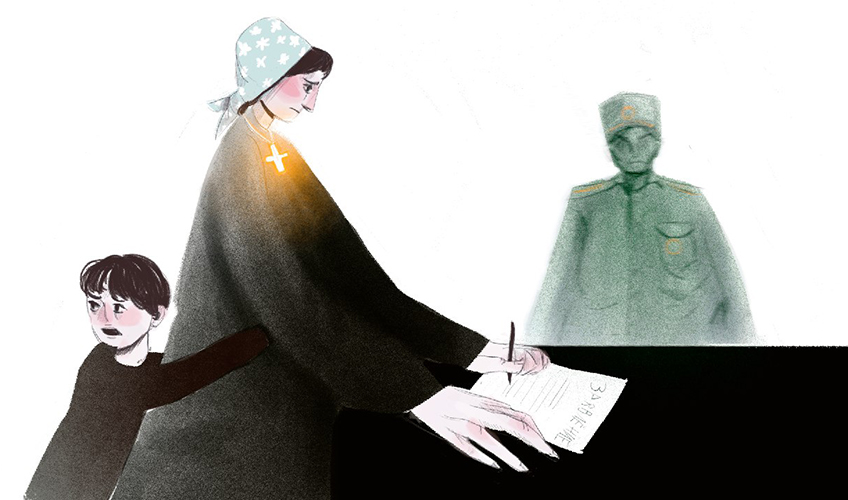
Deacon Andrei Tonkikh has chaired the Temperance Society for many years and serves in the department of social services and charity in the Bishkek and Kyrgyz dioceses of the Russian Orthodox Church.
He says he rarely encounters complaints of domestic violence but he thinks this is because “women are afraid of relatives and the public.”
That is, one often has to fight the stereotype: when a woman becomes a victim, she falls into imaginary stereotypes that she must endure, that she must bear the cross, must forgive [the aggressor]. Here, I have to explain that following these stereotypes is of no use, that domestic violence is not carrying the cross. We have to explain that these are false beliefs.
Deacon Andrei goes on to say that there is help available for victims of domestic violence. The Holy-Resurrection Cathedral has been running a shelter for several years, where the victims and their children can gain access to food, medicines, and legal advice.
He also added that the Russian Orthodox Church is implementing an international project with the organisation, Psychosocial Habilitation of Addicted People (PHAP). Every Sunday videoconferences are held with psychologists, priests and counselors so that people can come along and discuss the topic of violence and get advise about how to stop it.
In Kyrgyzstan, according to various sources, more than 16% of the population identify themselves as Christians: they are Orthodox Christians, Catholics, Protestants, and representatives of other movements.
Deacon Andrei also agrees that the Kyrgyz laws around domestic violence are written in a complex legal language, which is not always understood by victims of domestic violence, and therefore they are unaware of their rights. He adds that the state should take a more comprehensive and measured approach to solving the problem of domestic violence, including looking at ways to prevent it in the first place.
“You can’t take someone by the scruff of the neck and say this will solve the problem. We must always take a comprehensive approach to solving this problem and solve it gradually,” says the deacon.
Family dynamics
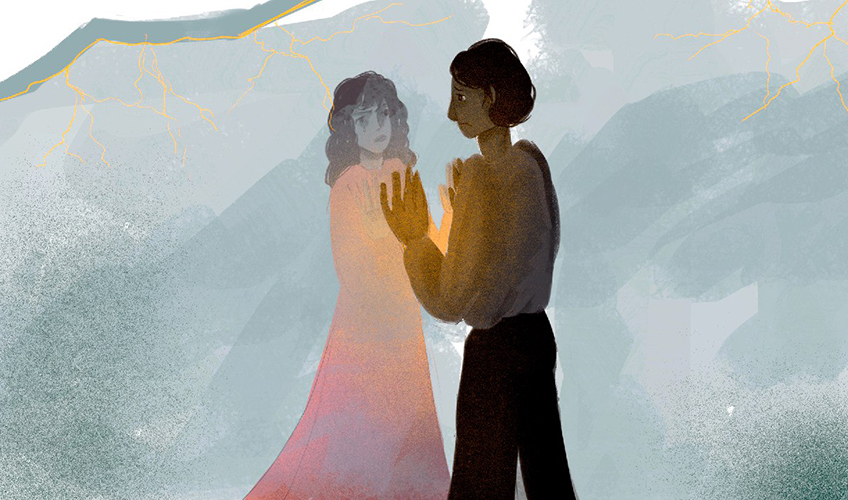
The Catholic Church in Kyrgyzstan is trying to help families fight domestic violence. Nikolai Pechkunov, a representative of the Catholic Church in Kyrgyzstan, tells us that the church actively cooperates with psychologists, social workers, foundations and rehabilitation centres so that together they can help families in these situations.
The church was concerned about the increased incidence of domestic violence and took additional measures, looking to the Vatican for further guidance.
“Pope Francis declared 2021 the Year of the Holy Family. He wants preachers to talk about who Joseph and Mary were in their sermons and explain how they are a complete family. Now yes, we unfortunately see there are problems within the family dynamic and so the Catholic Church is emphasizing that families need to be more united and that the Holy Family is an example for them,” Pechkunov concluded.
Equality between men and women
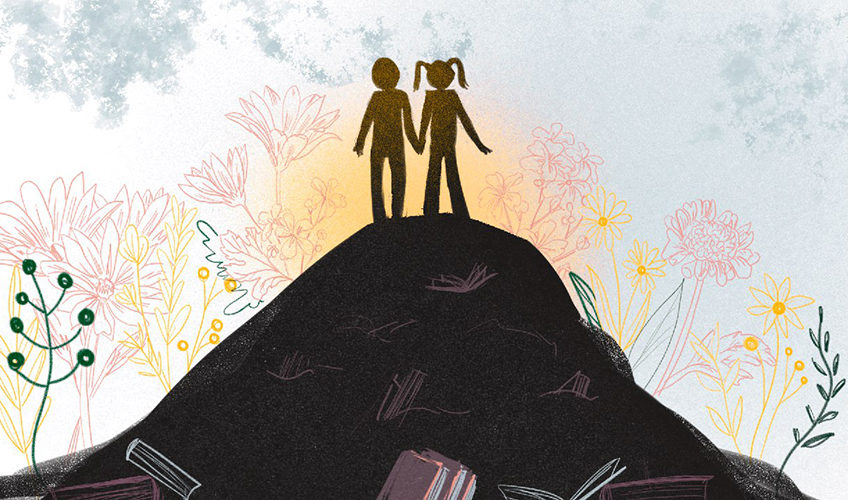
Malika Kartanbaeva, a representative of the Bahá’í community in Kyrgyzstan, recounts how she heard the screams of a woman coming from a different apartment in her building.
“You could hear through the wall that a woman was being beaten and children were crying. The next day I found out that, it was a pregnant woman with two more children, 6 and 7 years old,” she says.
Malika learned from a neighbour that these beatings had been going on for a long time, and despite seeking help from her neighbours and the police, more than once, the woman continued to return to her husband.
“We began to communicate with these neighbours, with her husband, with her. We started with the issue of raising children, that children learn everything from their families, and it is important to create a positive atmosphere that will help them to grow,” says Malika.
Conversations are ongoing but the first steps are positive, and Malika notes that violence is decreasing within the family.
The Bahá’í community is actively working with young people to challenge ‘accepted’ violent behaviours – they have open conversations about what equality between men and women looks like and how to avoid future violence within the family.
We are trying to create an environment where they [children and adolescents] will reflect and come to the realisation [of equality] and thus the atmosphere in the future family will change too.
Seeking new ways to communicate
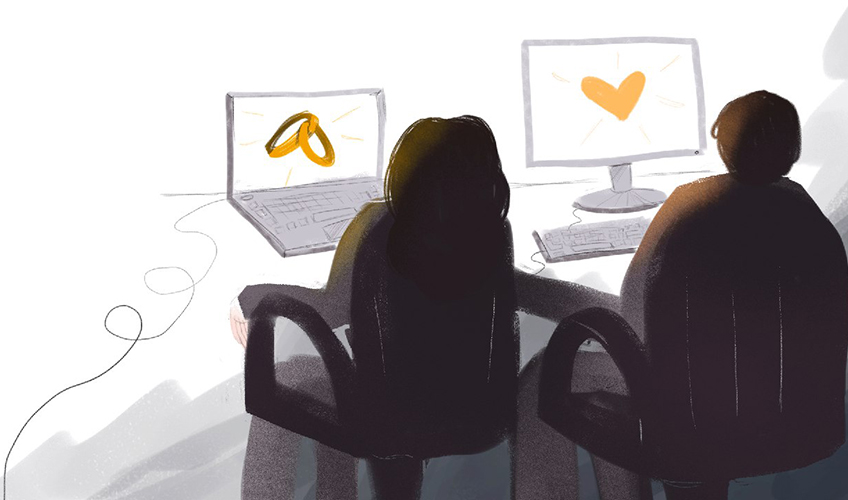
The pandemic and lockdown forced the Alliance of Churches of Kyrgyzstan to seek new ways to communicate with parishioners. This is how the idea of online courses for couples who experience communication difficulties during quarantine was born.
“During the pandemic, Kyrgyzstan, like other countries, found itself in a difficult situation. During the quarantine, everyone had to be at home. It increased the risk of violence against women, against children when they were all at home together,” says Pastor Ryspek Zairov.
The online courses were created to help families share their stories, receive counselling from mentors, family and child psychologists, and together look for ways to solve issues they are facing without the use of violence and strengthen their marriage.
As a preventative measure, the church also conducts a six-month preparatory course for couples who decide to get married in order to prepare them for family life.
“We talk about the roles of women and men in marriage, honor and the worship of God. Over the six months, they get to know each other more. In addition, we teach them that conflict situations happen everywhere. If you handle conflicts correctly, then you grow in marriage, and if it is wrong, then the marriage falls apart. God does not want a divorce, God wants a happy marriage,” says the pastor.
Family values
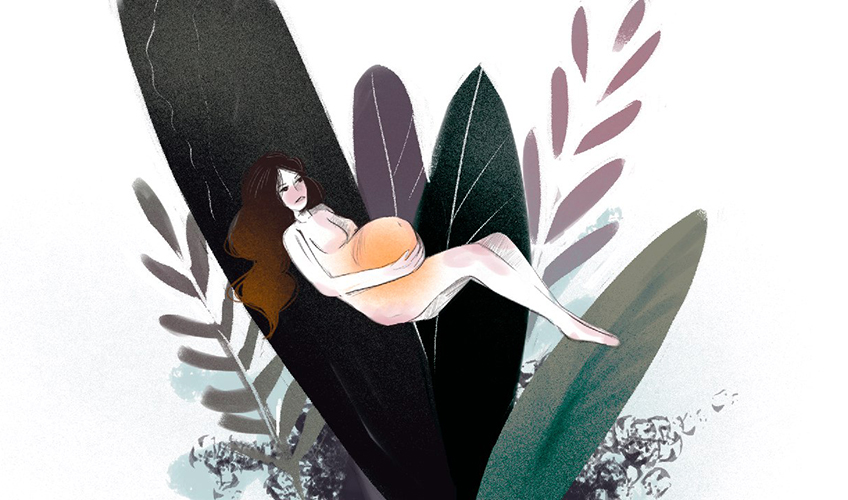
“The Kyrgyz people have lost their family values,” says Kanykei Seyitkazieva, head of the “Uulu Tendik” Foundation.
“Uulu Tendik” is one of the few registered organisations that is trying to work with Tengrians in Kyrgyzstan and promote their interests in the State Commission on Religious Affairs.
“We have violated folk traditions, we have violated our attitude to ourselves, to people, to nature, and we are now questioning equality and see violence on the rise,” Seitkazieva says.
The pandemic and increased levels of domestic violence have shown how far the Kyrgyz people have become detached from their roots, Seyitkazieva says.
“The Kyrgyz people have always appreciated women, the role of women, the role of men, and all these values took place in everyday life – every day, every hour. Living life, the Kyrgyz people followed these rules…We are restoring these values, we are working on it,” says Seyitkazieva.
About the project
The Tatyktoo zhasho project aims to obtain support from religious leaders in the implementation of the National Strategy and National Action Plan for Achieving Gender Equality. They also participate in an information campaign on the prevention of violence against women in various religious communities. The project is in response to the surge in domestic violence during the quarantine period caused by the COVID-19 pandemic and to the long-term impact of the epidemic – food and economic security – that shape violence against women and girls.
Impact of COVID-19 on VAWG
A recent blog by International Alert’s Stuart Moir reflects on peacebuilding and addressing the impact of COVID-19 on violence against women and girls. It shares models around how to tackle violence against women and the urgency to do so as violence rises during the pandemic. He looks at possible ways to challenge attitudes, behaviours and norms around gender including examining masculinities to understand and address harmful patriarchal norms and culturally embedded gender inequality and power imbalances.
As part of the Tatyktoo zhasho project we developed an animation that looks at the issue of domestic violence:
Children learn behaviours they see, they will treat their spouses the way that their parents treated each other. Domestic violence destroys families and is never a solution to problems. There is always a choice – be a role model, challenge violence against women.






